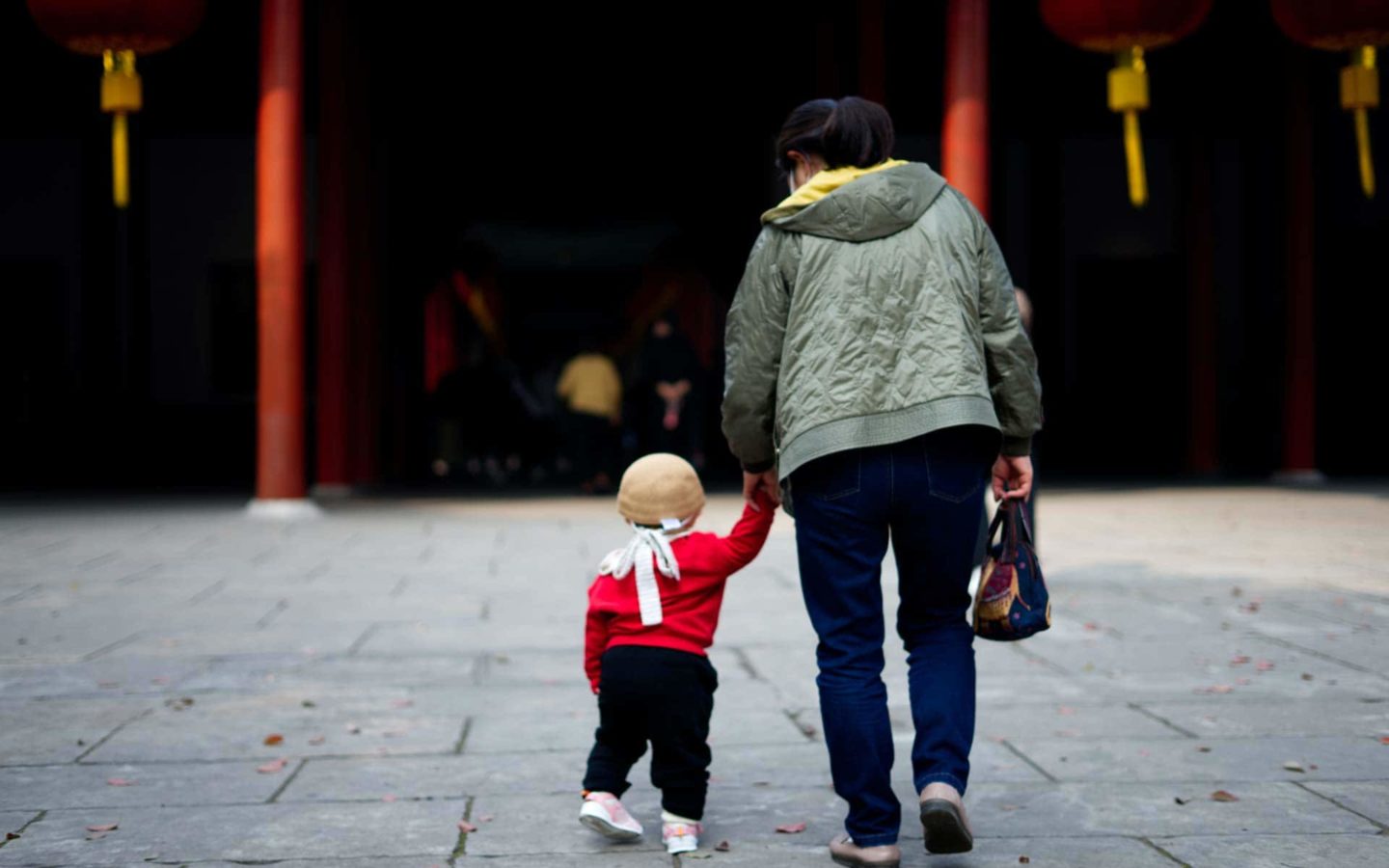In the late 1970s, China’s central government made a huge breakthrough in economic development by implementing a series of policies to open the Chinese market to foreign capital and privatise a large part of state-owned industries. These policies are called China’s opening up policies. Since their implementation, China has embarked on a rapid process of urbanisation and industrialisation, and after only 40 years’ development, China is now the second largest economy in the world.
Rural Migrant Workers
Accompanying the expansion of cities and rapid economic growth is an unprecedented scale of internal rural-urban migration. The hukou (household registration) system, first introduced in the 1950s, functions to control population movement and to allocate public resources. People with urban hukou can benefit from better healthcare and education resources, employment protection and pension provisions in the cities, compared with rural residents. The division of the society and economy between rural and urban areas is commonly referred to in China as the ‘rural-urban dual system’, of which hukou plays a central role [1].
People who have rural household registration, but engage in non-agricultural work outside their household registration for more than six months, are called rural migrant workers (RMWs). Due to their lower level of education and rural hukou, many of them are short-term informal workers and cannot gain the hukou of their host cities. According to the national census [2], there were around 292.5 million RMWs in 2021, almost one fourth of China’s total population. The wide economic gap between rural and urban areas impels rural people to migrate to cities and become cheap labour in labour-intensive industries, further exacerbating rural-urban inequalities.
In order to maintain economic growth and socio-political stability, provincial governments have relaxed part of the restrictions on rural-urban migration in terms of residence permit and duration. Although, rural people no longer need a local government permit to stay in the cities, they are still denied equal access to the urban welfare system due to their rural hukou status [3].
RMW’s long-term migration and the rural-urban dual system have caused many problems for RMWs’ families, especially for left-behind children and aged grandparents [4]. More than half of first-generation RMWs left their children in their home villages, mainly due to the high cost of childcare and educational barriers in the cities. Research has found that the long-term separation significantly harmed the wellbeing of both children and parents, and had a negative influence on their family relationships [5].
Second-generation RMWs (RMWs who were born since the 1980s) have grown up with better living conditions, benefitting from the rapid economic development and social changes that have resulted from the opening up policies. In general, they are younger, better educated and have a stronger intention to settle down in their host cities compared to the first generation of RMWs.
With the improvement of their economic situation and the relaxation of hukou, there are a growing number of second-generation RMWs who prefer to raise their children in cities rather than leave them behind in villages. However, since most RMWs work long hours and lack social support in the cities, they have to rely on their parents to provide childcare. As a result, not only their children, but also their ageing parents are joining the migration to cities.
‘…since most rural migrant workers work long hours and lack social support in the cities, they have to rely on their parents to provide childcare. As a result, not only their children, but also their ageing parents are joining the migration to cities.’ Photo of grandparent walking holding hands with child by Bran Liang on Unsplash
Grandparents’ involvement in childcare may not reflect individual choices; rather, it is viewed by some as a collective arrangement to maximise family well-being, especially for the younger generation, in the context of a booming market economy [6]. The one-child policy implemented in China from 1979 to 2015, and women’s unprecedentedly high participation in the labour force, have led to significant changes in families. For example, scholars use the notion of ‘descending familism’ to describe the increasing tendency of families to transfer family resources (including material and emotional ones) from the senior generation to the junior generation, especially to grandchildren [7]. As a result, the happiness and success of the youngest generation are often perceived as the sign of the family’s success. What’s more, filial piety, the most fundamental principle in Chinese culture that guides familial practice, has also undergone changes. The new pattern of filial piety features mutual understanding and reciprocity between the senior and junior generations, instead of hierarchy and obedience.
RMW families face significant challenges due to the hukou system and their disadvantaged socioeconomic status in the cities. For example, migrant children have very limited access to local public schools, and they are forced to migrate back to their villages to take college entrance exams in their hukou registration provinces[8]. Migration to the cities also leads to multiple pressure on older grandparents, which has a negative impact on their wellbeing[9]. Furthermore, the structural barriers caused by the rural-urban dual system and RMWs’ limited access to social support in cities, have lead to much tension in intergenerational cooperation in childrearing.
My Research
Considerable research [10] has focused on left-behind children and older people in rural areas, however, rather less attention has been focused on care within RMW families when family members accompany or join RMWs, especially how it is shaped by intergenerational cooperation. My PhD research, jointly funded by the University of Sheffield and the China Scholarship Council, aims to explore the following questions: How does this new pattern of intergenerational cooperation influence the configuration of childcare and RMWs’ intergenerational relationships? What challenges are RMWs and their parents confronted with in negotiating childcare? How are these influenced by their rural-urban migration and by social policies? How is the wellbeing of rural older people influenced by becoming older migrants and caregivers?
As an exploratory research study, it will use qualitative research methods, including in-depth interviews, participant observation and focus groups. It will start with focus groups to scope new questions and identify background issues neglected in past studies. In-depth interviews will be used to gain a deeper understanding of how migrant workers cooperate with their aged parents to implement care in their everyday lives and how migration influences their family practices. Life mapping will be used as part of the semi-structured interviews as it enables researchers to examine influential events across the life course, including in the context of migration. Life mapping method can also give participants more freedom to tell their stories in a creative way. My fieldwork site will be in Guangdong province, which is the main destination of RMWs in China. Guangdong’s leading role in introducing policies on rural-urban migration could also allow me to collect rich data on how public policies influence migrants’ family care.
References
[1] Kam Wing Chan & Yanning Wei (2019) Two systems in one country: the origin, functions, and mechanisms of the rural-urban dual system in China, Eurasian Geography and Economics, 60:4, 422-454, DOI: 10.1080/15387216.2019.1669203
[2] Refer to: http://www.stats.gov.cn/tjsj/zxfb/202202/t20220227_1827960.html, accessed on 30/05/2022
[3] Alex Jingwei He, Chunni Zhang, Jiwei Qian, COVID-19 and social inequality in China: the local–migrant divide and the limits of social protections in a pandemic, Policy and Society, 2022;, puac003, https://doi.org/10.1093/polsoc/puac003
[4] Sun X, Tian Y, Zhang Y, Xie X, Heath MA, Zhou Z. Psychological development and educational problems of left-behind children in rural China. School Psychology International. 2015;36(3):227-252. doi:10.1177/0143034314566669
& Wang G, Hu M, Xiao S, et al Loneliness and depression among rural empty-nest elderly adults in Liuyang, China: a cross-sectional study BMJ Open 2017;7:e016091. doi: 10.1136/bmjopen-2017-016091
[5] Refer to: https://doi.org/10.1016/S0140-6736(18)32558-3
[6] Zhao, Y., Huang, Y. (2021). The Mobility of the Elderly and Family-Based Care: A Case Study of Chinese Migrant (Grand)Parents. In: Ryndyk, O., Suter, B., Odden, G. (eds) Migration to and from Welfare States. IMISCOE Research Series. Springer, Cham. https://doi.org/10.1007/978-3-030-67615-5_2
[7] Yan, Y. (2016), Intergenerational Intimacy and Descending Familism in Rural North China. American Anthropologist, 118: 244-257. https://doi.org/10.1111/aman.12527
[8] Education Inequality between Rural and Urban Areas of the People’s Republic of China, Migrants’ Children Education, and Some Implications Dandan Zhang, Xin Li, and Jinjun Xue Asian Development Review 2015 32:1, 196-224
[9] Wang, S, Hu, Y. Migration and health in China: Linking sending and host societies. Popul Space Place. 2019; 25:e2231. https://doi.org/10.1002/psp.2231
[10] Tian X, Ding C, Shen C, Wang H. Does Parental Migration Have Negative Impact on the Growth of Left-Behind Children?—New Evidence from Longitudinal Data in Rural China. International Journal of Environmental Research and Public Health. 2017; 14(11):1308. https://doi.org/10.3390/ijerph14111308
& Zhao, C., Wang, F., Zhou, X. et al. Impact of parental migration on psychosocial well-being of children left behind: a qualitative study in rural China. Int J Equity Health 17, 80 (2018). https://doi.org/10.1186/s12939-018-0795-z
About the author
Yingzi‘s PhD research is focused on the family care provided by elder grandparents in migrant workers’ families, who migrate from rural area to big cities in China, and how inter-generational cooperation, migration and public policies affect the care equality and carers’ wellbeing.





